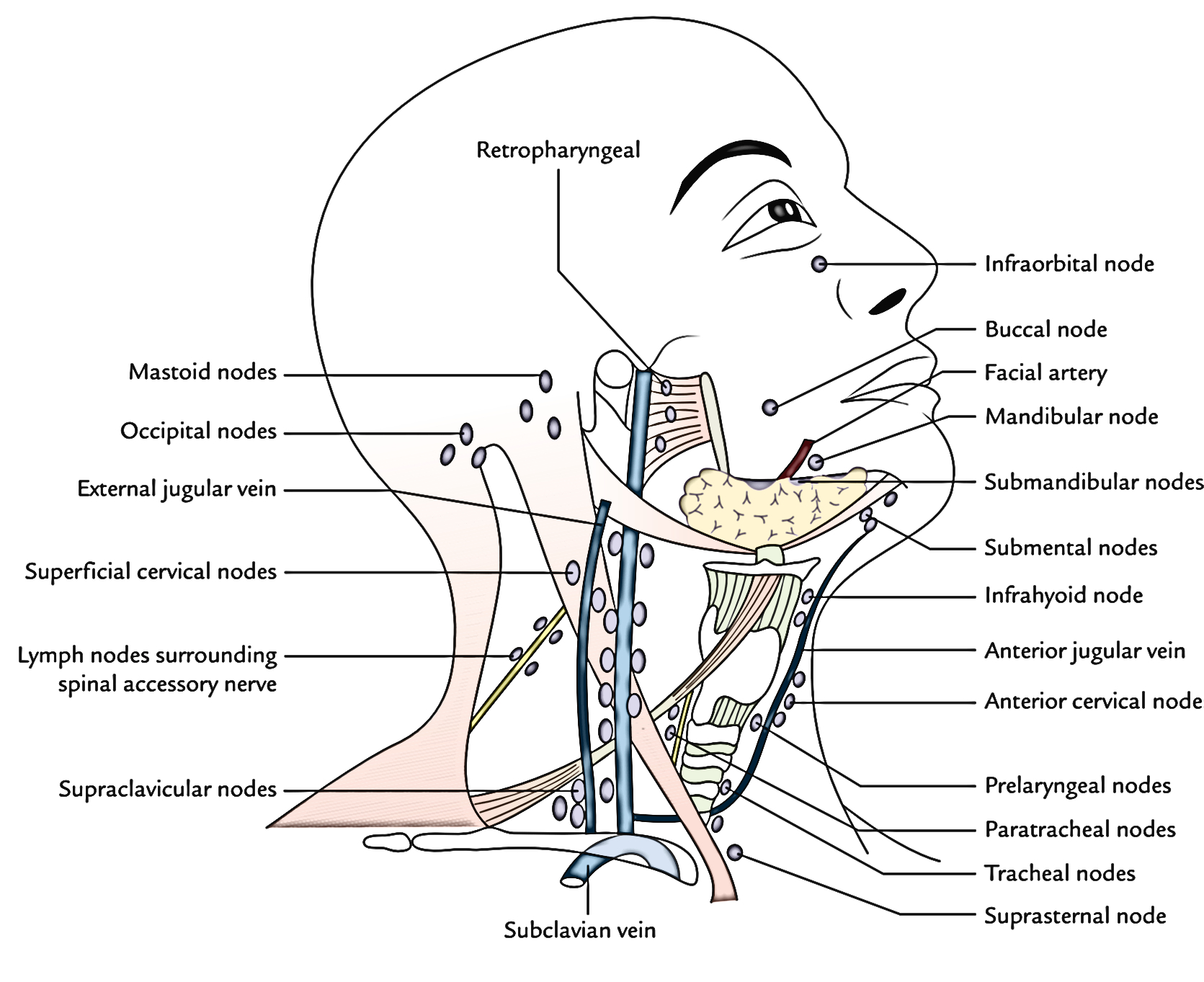Home → Lymph node excision cervical

A lymph node biopsy is a test that checks for disease in your lymph nodes. Lymph nodes are small, oval-shaped organs located in different parts of your body. They’re found close to internal organs such as your stomach, intestines, and lungs, and are most commonly noted in the armpits, the groin, and the neck.
Lymph nodes are part of your immune system, and they help your body recognize and fight off infections. A lymph node may swell in response to an infection somewhere in your body. Swollen lymph nodes can appear as a lump beneath your skin.
Your doctor may find swollen or enlarged lymph nodes during a routine examination. Swollen lymph nodes that result from minor infections or insect bites typically don’t require medical care. However, to rule out other problems, your doctor may monitor and check your swollen lymph nodes.
If your lymph nodes remain swollen or grow even larger, your doctor may order a lymph node biopsy. This test will help your doctor look for signs of a chronic infection, an immune disorder, or cancer.
A lymph node biopsy can take place at a hospital, in your doctor’s office, or in other medical facilities. It’s typically an outpatient procedure, which means you don’t have to stay overnight at the facility.
With a lymph node biopsy, your doctor may remove the entire lymph node, or take a tissue sample from the swollen lymph node. Once the doctor removes the node or sample, they send it to a pathologist in a lab, who examines the lymph node or tissue sample under a microscope.
There are three ways to perform a lymph node biopsy.
1. Needle biopsy
A needle biopsy removes a small sample of cells from your lymph node.
This procedure takes about 10 to 15 minutes. While you’re lying on an examination table, your doctor will clean the biopsy site and apply medication to numb the area. Your doctor will insert a fine needle into your lymph node and remove a sample of cells. They’ll then remove the needle and put a bandage on the site.
2. Open biopsy
An open biopsy removes either a portion of your lymph node or the entire lymph node.
Your doctor can perform this procedure with local anesthesia, using a numbing medication applied to the biopsy site. You can also request general anesthesia that will make you sleep through the procedure.
The entire procedure takes between 30 and 45 minutes. Your doctor will:
make a small cut
remove the lymph node or portion of the lymph node
stitch the biopsy site closed
apply a bandage
Pain is generally mild after an open biopsy, and your doctor may suggest over-the-counter pain medications. It takes about 10 to 14 days for the incision to heal. You should avoid strenuous activity and exercise while your incision heals.
3. Sentinel biopsy
If you have cancer, your doctor may perform a sentinel biopsy to determine where your cancer is likely to spread.
With this procedure, your doctor will inject a blue dye, which is also called a tracer, into your body near the cancer site. The dye travels to the sentinel nodes, which are the first few lymph nodes into which a tumor drains.
Your doctor will then remove this lymph node and send it to a lab to check it for cancer cells. Your doctor will make treatment recommendations based on the lab results.
There are risks involved with any type of surgical procedure. Most of the risks of the three types of lymph node biopsy are similar. Notable risks include:
tenderness around the biopsy site
infection
bleeding
numbness caused by accidental nerve damage
Infection is relatively rare and can be treated with antibiotics. Numbness can occur if the biopsy is done near nerves. Any numbness typically disappears within a couple of months.
If you have your entire lymph node removed — this is called a lymphadenectomy — you could have other side effects. One possible effect is a condition called lymphedema. This can cause swelling in the affected area.